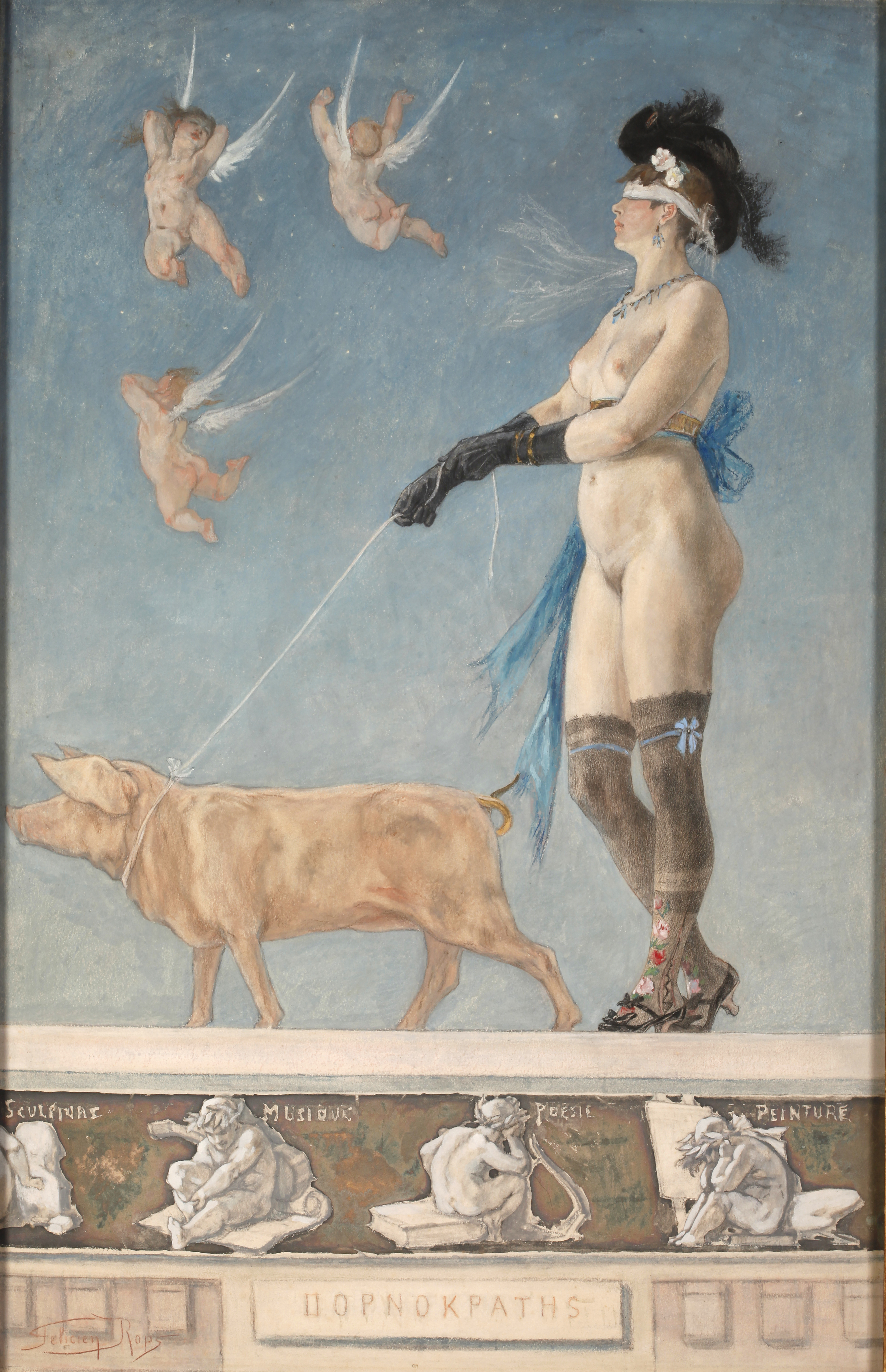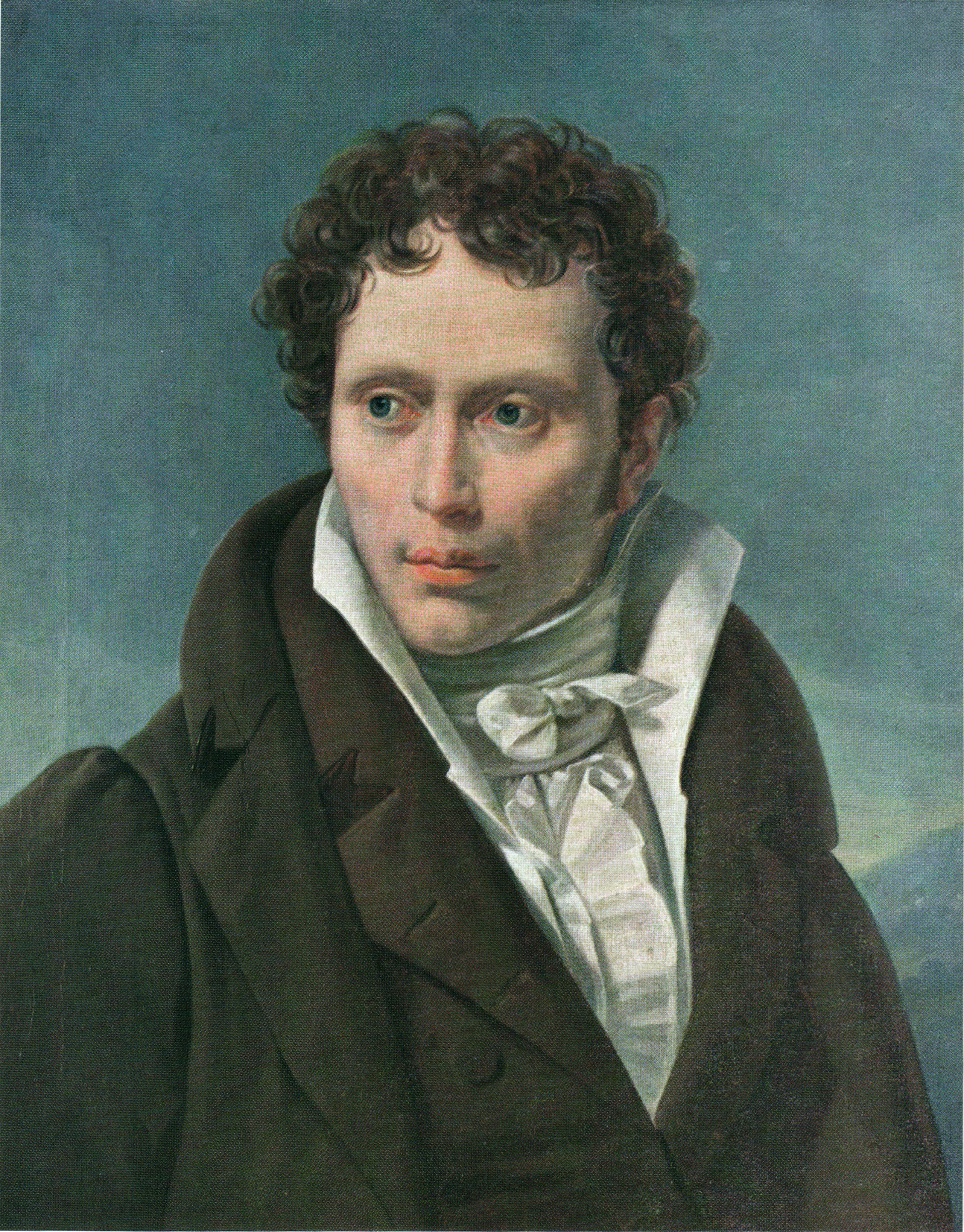|
The Feeling Of A Westerner
"", published in English as "The Feeling of a Westerner" (Richard Zenith, 2009) is a long poem written by Portuguese poet Cesário Verde (1855–1886). It is today considered Verde's masterpiece and one of the foremost Portuguese poems of the 19th century. A narrative poem, it illustrates the multiplicity of the urban spaces in Lisbon — the paradigm of an ostensible national progress — and how they were lived, as the poetic persona, a ''flâneur'' in the manner of Baudelaire, shares his experience of contemplating the urban crowd while walking across the city. The description of the transformations of the social and physical landscape hints at the social malaise by focusing on the human pain and hardship that are commonplace around the city. Because the poem evokes, at times, a glorious national past only as a counterpoint to modern decadence, some critics like Eduardo Lourenço have referred to it as a "counter-epopee", a subversion of the epic poetry genre. It was first ... [...More Info...] [...Related Items...] OR: [Wikipedia] [Google] [Baidu] |
Cesário Verde
Cesário Verde (25 February 1855 – 19 July 1886) was a 19th-century Portuguese poet. His work, while mostly ignored during his lifetime and not well known outside of the country's borders even today, is generally considered to be amongst the most important in Portuguese poetry and is widely taught in schools. This is partly due to his being championed by many other authors after his death, notably Fernando Pessoa. Biography José Joaquim Cesário Verde was born in Lisbon, Portugal. His father was a shopkeeper and exporter of fruit products. He also had a small farm on the outskirts, at which Verde's family resided during the summer. In 1857, an outbreak of the plague lead his father to permanently move the family to the country, where they lived until coming back to Lisbon in 1865. This early contact with the countryside instilled in Verde a deep love of nature, which would show up repeatedly in his poems about life in the country, almost always depicted in a bucolic, idylli ... [...More Info...] [...Related Items...] OR: [Wikipedia] [Google] [Baidu] |
Tricentennial Of The Death Of Luís De Camões
An anniversary is the date on which an event took place or an institution was founded in a previous year, and may also refer to the commemoration or celebration of that event. The word was first used for Catholic feasts to commemorate saints. Most countries celebrate national anniversaries, typically called national days. These could be the date of independence of the nation or the adoption of a new constitution or form of government. There is no definite method for determining the date of establishment of an institution, and it is generally decided within the institution by convention. The important dates in a sitting monarch's reign may also be commemorated, an event often referred to as a "jubilee". Names * Birthdays are the most common type of anniversary, on which someone's birthdate is commemorated each year. The actual celebration is sometimes moved for practical reasons, as in the case of an official birthday or one falling on February 29. * Wedding anniversaries ... [...More Info...] [...Related Items...] OR: [Wikipedia] [Google] [Baidu] |
Literary Modernism
Literary modernism, or modernist literature, originated in the late 19th and early 20th centuries, and is characterized by a self-conscious break with traditional ways of writing, in both poetry and prose fiction writing. Modernism experimented with literary form and expression, as exemplified by Ezra Pound's maxim to "Make it new." This literary movement was driven by a conscious desire to overturn traditional modes of representation and express the new sensibilities of their time. The horrors of the First World War saw the prevailing assumptions about society reassessed, and much modernist writing engages with the technological advances and societal changes of modernity moving into the 20th century. Origins and precursors In the 1880s, increased attention was given to the idea that it was necessary to push aside previous norms entirely, instead of merely revising past knowledge in light of contemporary techniques. The theories of Sigmund Freud (1856–1939), and Ernst Mach (183 ... [...More Info...] [...Related Items...] OR: [Wikipedia] [Google] [Baidu] |
Parnassianism
Parnassianism (or Parnassism) was a French literary style that began during the positivist period of the 19th century, occurring after romanticism and prior to symbolism. The style was influenced by the author Théophile Gautier as well as by the philosophical ideas of Arthur Schopenhauer. Origins and name The name is derived from the original Parnassian poets' journal, ''Le Parnasse contemporain'', itself named after Mount Parnassus, home of the Muses of Greek mythology. The anthology was first issued in 1866 and again in 1869 and 1876, including poems by Charles Leconte de Lisle, Théodore de Banville, Sully Prudhomme, Stéphane Mallarmé, Paul Verlaine, François Coppée, Nina de Callias, and José María de Heredia. The Parnassians were influenced by Théophile Gautier and his doctrine of "art for art's sake". As a reaction to the less-disciplined types of romantic poetry and what they considered the excessive sentimentality and undue social and political activism ... [...More Info...] [...Related Items...] OR: [Wikipedia] [Google] [Baidu] |
Decadent Movement
The Decadent movement (Fr. ''décadence'', “decay”) was a late-19th-century artistic and literary movement, centered in Western Europe, that followed an aesthetic ideology of excess and artificiality. The Decadent movement first flourished in France and then spread throughout Europe and to the United States. The movement was characterized by a belief in the superiority of human fantasy and aesthetic hedonism over logic and the natural world. Overview The concept of decadence dates from the 18th century, especially from the writings of Montesquieu, the Enlightenment philosopher who suggested that the decline (''décadence'') of the Roman Empire was in large part due to its moral decay and loss of cultural standards. When Latin scholar Désiré Nisard turned toward French literature, he compared Victor Hugo and Romanticism in general to the Roman decadence, men sacrificing their craft and their cultural values for the sake of pleasure. The trends that he identified, such ... [...More Info...] [...Related Items...] OR: [Wikipedia] [Google] [Baidu] |
Fyodor Dostoevsky
Fyodor Mikhailovich Dostoevsky (, ; rus, Фёдор Михайлович Достоевский, Fyódor Mikháylovich Dostoyévskiy, p=ˈfʲɵdər mʲɪˈxajləvʲɪdʑ dəstɐˈjefskʲɪj, a=ru-Dostoevsky.ogg, links=yes; 11 November 18219 February 1881), sometimes transliterated as Dostoyevsky, was a Russian novelist, short story writer, essayist and journalist. Dostoevsky's literary works explore the human condition in the troubled political, social, and spiritual atmospheres of 19th-century Russia, and engage with a variety of philosophical and religious themes. His most acclaimed novels include '' Crime and Punishment'' (1866), '' The Idiot'' (1869), ''Demons'' (1872), and '' The Brothers Karamazov'' (1880). His 1864 novella, '' Notes from Underground'', is considered to be one of the first works of existentialist literature. Numerous literary critics regard him as one of the greatest novelists in all of world literature, as many of his works are considered highly i ... [...More Info...] [...Related Items...] OR: [Wikipedia] [Google] [Baidu] |
Philosophical Pessimism
Philosophical pessimism is a family of philosophical views that assign a negative value to life or existence. Philosophical pessimists commonly argue that the world contains an empirical prevalence of pains over pleasures, that existence is ontologically or metaphysically adverse to living beings, and that life is fundamentally meaningless or without purpose. Their responses to this condition, however, are widely varied and can be life-affirming. Philosophical pessimism is not a single coherent movement, but rather a loosely associated group of thinkers with similar ideas and a resemblance to each other. In ''Weltschmerz: Pessimism in German Philosophy, 1860-1900'', Frederick C. Beiser describes philosophical pessimism as "the thesis that life is not worth living, that nothingness is better than being, or that it is worse to be than not be". In a very similar way, Schopenhauer argues that it would have been better if life had not come into existence. Although adherents of philos ... [...More Info...] [...Related Items...] OR: [Wikipedia] [Google] [Baidu] |
Republicanism
Republicanism is a political ideology centered on citizenship in a state organized as a republic. Historically, it emphasises the idea of self-rule and ranges from the rule of a representative minority or oligarchy to popular sovereignty. It has had different definitions and interpretations which vary significantly based on historical context and methodological approach. Republicanism may also refer to the non-ideological scientific approach to politics and governance. As the republican thinker and second president of the United States John Adams stated in the introduction to his famous ''A Defense of the Constitutions of Government of the United States of America,'' the "science of politics is the science of social happiness" and a republic is the form of government arrived at when the science of politics is appropriately applied to the creation of a rationally designed government. Rather than being ideological, this approach focuses on applying a scientific methodology to ... [...More Info...] [...Related Items...] OR: [Wikipedia] [Google] [Baidu] |
Portuguese Discoveries
Portuguese maritime exploration resulted in the numerous territories and maritime routes recorded by the Portuguese as a result of their intensive maritime journeys during the 15th and 16th centuries. Portuguese sailors were at the vanguard of European exploration, chronicling and mapping the coasts of Africa and Asia, then known as the East Indies, and Canada and Brazil (the West Indies), in what came to be known as the Age of Discovery. Methodical expeditions started in 1419 along West Africa's coast under the sponsorship of prince Henry the Navigator, with Bartolomeu Dias reaching the Cape of Good Hope and entering the Indian Ocean in 1488. Ten years later, in 1498, Vasco da Gama led the first fleet around Africa to India, arriving in Kozhikode, Calicut and starting a maritime route from Portugal to India. Portuguese explorations then proceeded to southeast Asia, where they reached Japan in 1542, forty-four years after their first arrival in India. In 1500, the Portuguese nob ... [...More Info...] [...Related Items...] OR: [Wikipedia] [Google] [Baidu] |
Teófilo Braga
Joaquim Teófilo Fernandes Braga (; 24 February 1843 – 28 January 1924) was a Portuguese writer, playwright, politician and the leader of the Republican Provisional Government after the overthrow of King Manuel II, as well as the second elected president of the First Portuguese Republic, after the resignation of President Manuel de Arriaga. Biography Teófilo Braga was born in the Azores, in São José, Ponta Delgada, his father was Joaquim Manuel Fernandes Braga who probably a descendant of one of King João V’s illegitimate children, most likely António of Braganza who was a Doctor in Theology, knight of Order of Christ and known for one of 3 Children of Palhavã. His mother was Maria José da Câmara e Albuquerque, from the island of Santa Maria, another descendant of Portuguese nobility because she was probably traced to Infanta D. Urraca, who was the one of King Afonso III’s illegitimate children, as the genealogist Ferreira Serpa has shown. Teófilo was ... [...More Info...] [...Related Items...] OR: [Wikipedia] [Google] [Baidu] |
Romanticism
Romanticism (also known as the Romantic movement or Romantic era) was an artistic, literary, musical, and intellectual movement that originated in Europe towards the end of the 18th century, and in most areas was at its peak in the approximate period from 1800 to 1850. Romanticism was characterized by its emphasis on emotion and individualism, clandestine literature, paganism, idealization of nature, suspicion of science and industrialization, and glorification of the past with a strong preference for the medieval rather than the classical. It was partly a reaction to the Industrial Revolution, the social and political norms of the Age of Enlightenment, and the scientific rationalization of nature. It was embodied most strongly in the visual arts, music, and literature, but had a major impact on historiography, education, chess, social sciences, and the natural sciences. It had a significant and complex effect on politics, with romantic thinkers influencing conservatism, ... [...More Info...] [...Related Items...] OR: [Wikipedia] [Google] [Baidu] |
.jpg)







